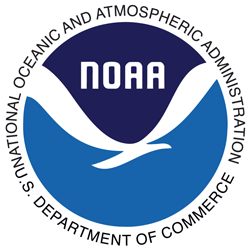The scientific integrity policy released today by the National Oceanic and Atmospheric Administration makes today a great day for science at the agency—but it also signals that the White House and Congress must do more to address bigger, government-wide scientific integrity challenges. 
In its ongoing effort to create strong scientific integrity standards in government, the White House has told federal scientific agencies and departments that they must submit “final draft [scientific integrity] policies” by December 17. NOAA released a draft policy on June 16, 2011 for public comment. The agency received more than 17,000 comments in 8 weeks. UCS also submitted its own suggestions for improving the policy, complete with a line-by-line analysis of it.
Improvements made
In comparing the first draft to the final policy, one can see that a number of improvements were made. Among the highlights of the new policy:
- To help ensure external accountability, NOAA is the first agency to commit to reporting annual aggregate statistics of scientific integrity misconduct cases (Section 10-04).
- The policy gives scientists the right to review and correct official documents that cite or reference their research (Section 7.01, second bullet). This makes it more difficult for anyone at the agency to misrepresent NOAA scientists’ research—whether intentionally or unintentionally.
- NOAA scientists now have the explicit right to express their personal views on any topic as long as they include a disclaimer stating that their views do not reflect those of NOAA or the Department of Commerce (Section 4.06).
- The professional biographical information for federal advisory committee members and federal advisory committee conflict-of-interest waivers will be made publicly available, except when the law prohibits disclosure (Section 7.01, third bullet).
- NOAA will provide its employees with timely and regular training regarding the new policy (Section 4.10) and will maintain a centralized “Scientific Integrity Commons” website where all can learn about and follow the department’s scientific integrity efforts.
The policy also tasks the NOAA Research Council with developing a “NOAA-wide framework for peer review and approval of Fundamental Research Communications” (Section 7.04) – agency speak for “media policy.” There is no timeline for the development of this policy, and I hope the agency will make this a priority.
Broader challenges remain
There are still a few areas of concern, however, that the policy does not fully address—partially because it will take greater leadership outside the agency to create meaningful change. First, the NOAA policy stipulates that “the scientific and technological findings, conclusions, and methodologies considered or relied on in policy decisions will be made available to the public in a timely manner” (Section 7, fifth bullet). What matters here is that this transparency is used to protect the scientific information when it leaves the agency, especially as the basis for a regulation or for other interagency review.
Interagency review is typically a White House-coordinated process that allows other agencies to weigh in on proposed NOAA policies and regulations. In the past, the White House Office of Management and Budget has misused this process and changed peer-reviewed scientific documents to support policy decisions it wished to put forward. The White House needs to figure out a way to protect all scientific documents as they move through the interagency review process. This does not mean releasing deliberative policy documents, but should include giving the agencies the ability to release the peer-reviewed research it used to develop a policy proposal before the interagency review process begins.
Second, with regard to whistleblower protections, NOAA officials can reinforce and repeat their statement that those who report political interference in science will be protected from retaliation. But Congress needs to pass and the president needs to sign legislation that gives these worker protections more teeth.
And finally, the policy fails to address whether NOAA leadership will take steps towards a system of releasing visitor logs such as making their calendars available to the public so we can better understand who is trying to influence agency decision-making. The White House should instruct all agencies to follow its lead and release their visitor logs.
